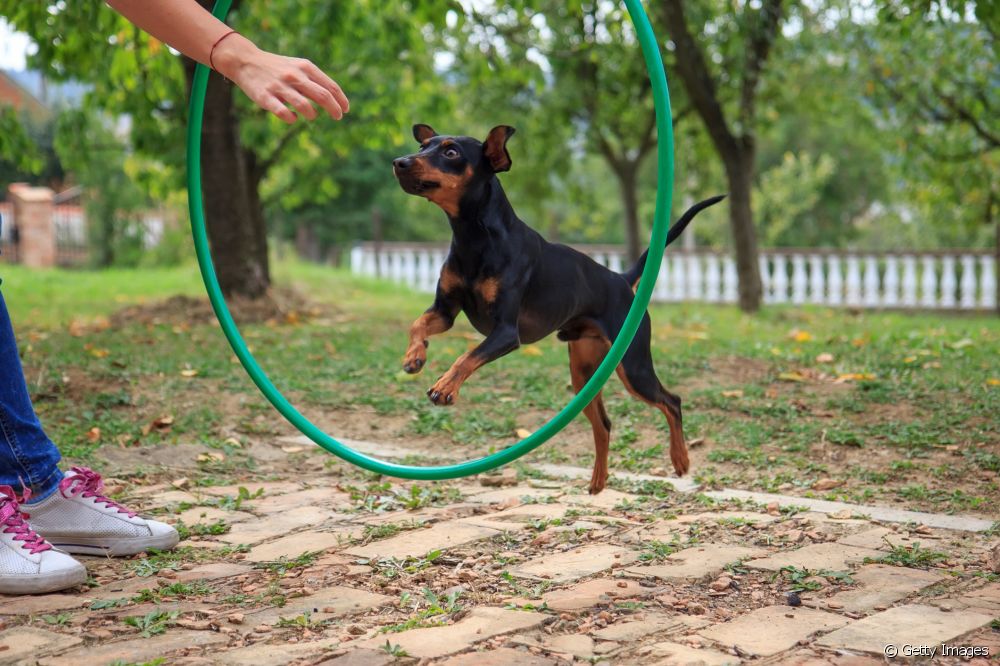Dog training: 5 things you need to know before training your dog

Table of contents
The best way to deal with a rowdy dog or one that doesn't know how to behave is by setting boundaries and teaching them right from wrong. And how to do that, anyway? Dog training may seem like a big deal, but it's not, as long as it's done the right way. Just like any field of knowledge, there are some basic rules that every guardian needs to know beforedog training, such as what are the most used techniques and what is the best age to start dog training. the Paws of the House has put together 5 things you need to know before training your puppy.
1) Positive training is the most recommended technique for educating dogs
Dogs respond much better to positive stimuli than to negative ones, so when it comes to "how to train dogs", most behaviorists recommend the positive reinforcement technique. In practice, whenever the puppy gets the command right, he is rewarded for good behavior. This makes the animal associate that attitude with something positive and he feels good about it.This can be used to teach a dog tricks, as well as to teach him to go potty in the right place, for example. The rewards can vary: treats, toys, affection and praise - anything goes!
2) There are different types of dog training, choose the most suitable for your pet
Contrary to what many people imagine, there is not just one type of dog training. There are several different strands, each aimed at a specific training. In the case of a guard dog or a guide dog, for example, the training is aimed at performing these work functions, whether it is teaching the dog to protect a site or to lead visually impaired people. However,it is also possible to invest in simpler training, which is usually the most requested by guardians, to teach the dog basic obedience commands, such as sit, lie down, give the paw, stay together and understand the meaning of "no". More than cute actions, these tricks improve communication and make the guardian have more control of the animal.

3) Puppy training is a lot easier, but dogs of all ages can learn it
Puppies are perfect candidates for dog training. Since they are still getting to know how the world works, it is easier to teach them what they can and cannot do at this stage. Still, it is worth noting that although the training process is easier and more practical with puppies, this does not prevent older dogs from learning as well. It is all a matter of knowinghow to teach to achieve a satisfactory result.
4) How to train dogs: punishments and fights should be avoided
There was a time when people believed that negative stimuli were the best way to educate dogs, but nowadays this thinking is considered outdated. Punishing and fighting with the dog is of no use and only serves to frighten the animal, and may even leave it traumatized. Therefore, it is essential to always pay attention to the tone of voice used to get the attention of your friend of dog.four paws and correct possible mistakes in a civilized and subtle way. Aggressive attitudes only end up making the situation worse and are not recommended.
5) In more difficult cases, a professional dog trainer can help
Sometimes a very messy dog or one that has many behavioral problems cannot learn so easily, but this should not be a reason to give up. The ideal, in these cases, is to seek the guidance of a professional dog trainer, as he will know the best way to deal with your puppy. Generally, the service is charged by the hour and varies between R$100 and R$200 per session.It is worth noting that, although dog training is not so cheap, this is the best alternative to correct some of your pet's attitudes. Also remember to look for a professional with good references!
See_also: Queen Elizabeth II's dog: Corgi was the monarch's favorite breed. See photos!
